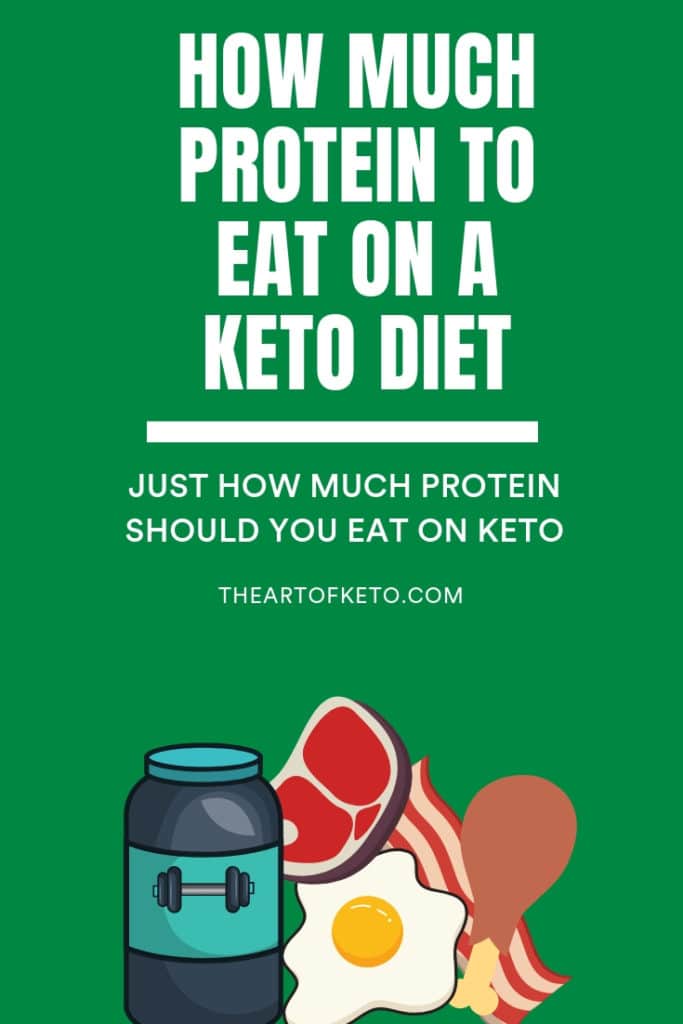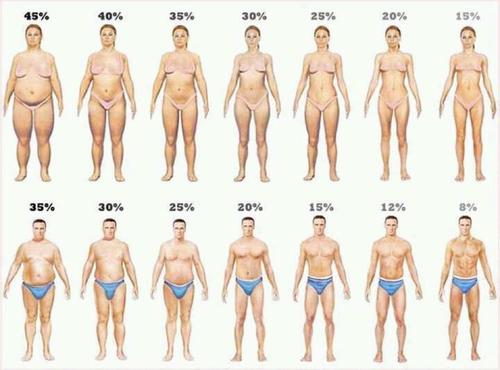In part 1 of this series we went over how to determine your maintenance calories – basically how many calories it took to maintain your current weight. From there we learned how many calories you should eat on a ketogenic diet to suit your specific goals.
Now begs the question, just how much protein is required on the ketogenic diet?
How much protein on keto?We need enough protein for satiety and to stave off muscle loss while dieting, but not too much where it either prevents us or knocks us out of ketosis.
Which might not actually that much of worry after all.

Our general rule of thumb regarding protein for individuals without excess amounts (>25%) body fat is to set your protein intake at .8g/lb of total bodyweight if inactive or .9g/lb if working out regularly.
And the easiest method is to set protein intake at 1 gram per pound of
Example: You weigh 180 pounds now, but you want to drop to 160 pounds, then you would eat 160 grams of protein per day.
HOW MUCH PROTEIN ON KETO. THE WHY.
There are two schools of thought on how much protein you should eat. One side limits intake as a percentage of overall calories, while the other believes in setting protein based upon weight or lean body mass regardless of where that lands percentage-wise.
While carbohydrate intake is the most important aspect of successfully reaching a state of ketosis, Hprotein intake is important to prevent muscle loss.
This is why in part 2 of the equation we are going to discuss and then establish our protein requirements for optimal muscle retention and keto-adaptation.
What’s tricky about figuring out how much protein you need on a ketogenic diet is that it must fall in a range high enough to prevent muscle loss but low enough to allow one to enter and maintain a state of ketosis.
With that said, let’s dive in.
Once ketosis is established, our bodies require very little glucose (carbohydrates) and the glucose it does need can be produced from other sources in the body, protein and fat.
Reaching a ketonic state sets in motion a series of adaptations which minimizes body protein loss during periods of caloric restriction but doesn’t negate it completely.
Our primary goal is to have enough dietary protein to maintain ketosis, while preventing the breakdown of our own bodily protein (muscle/lean mass).
And there lies the dilemma.
Just how much protein is enough to maintain ketosis while preventing muscle breakdown?
Through our own self-experiments and reasons discussed below, we believe in setting protein requirements based on weight, most notably lean body mass.
So how many grams of protein should you eat on a ketogenic diet?
How many grams of protein you should eat on a ketogenic diet will come down to a few factors:
- Bodyweight, but more accurately your LBM (Lean Body Mass = total weight – fat weight)
- If / how active you are (exercise)
- Whether just starting the ketogenic diet or already in ketosis
- How many carbs you are consuming
Regardless of diet, the body has a minimum protein requirement needed for every day bodily function such as basic tissue repair and hormone synthesis. The current RDA (Recommended Dietary Allowance) is .8g/kg or .36g/lb of bodyweight.
These numbers are based on a very sedentary lifestyle where you are eating enough calories to maintain your weight. (i.e. not trying to lose or gain weight)
The one caveat of calculating based
Fat mass is inactive and individuals carrying a large amount would likely increase protein intake beyond what is typically recommended/required.
How to calculate protein needs based on body weight
While it would arguably be more accurate to use lean body mass to calculate our protein intake, every method of body fat measurement offers a margin of error. For simplicity’s sake, we will be using total bodyweight in our recommendations.
If you know or have a general idea of your body fat percentage the more accurately you can determine your personal protein requirements.
While we do recommend measuring body fat via more accurate methods such as skinfold calipers, DEXA scan, or even bioelectrical impedance, we understand that these are not always accessible to everyone and have provided a visual illustration below to help

With that said, a recent study concluded that 0.82g/lb or 1.8g/kg is the upper limit at which protein intake benefits body composition. After the .82g/lb of protein, additional protein intake ceased to provide any measurable benefits.
This would give your average male carrying ~20% body fat an estimate of 1g of protein per pound of LBM.
Example: 180-pound male at 20% body fat
1g of protein per pound of LBM
180 x .20 = 36 pounds of fat
180 – 36 = 144 pounds of LBM
.82g of protein per pound of total bodyweight
.82 X 180 = 147.6
That gives us a net difference of 3.6g of protein which is negligible in the big scheme of things.
Based on these findings, my general recommendation would be to set protein at .8g/lb of protein for individuals who are not exercising upwards of .9g/lb for individuals who are exercising.
Again, these recommendations are based on TOTAL bodyweight for individuals generally under 25% body fat. For increased accuracy, those who would like to calculate protein based on LBM, we would recommend 1g/lb of LBM
Another easy method would to simply set your protein intake at 1 gram per pound of
More reasons to increase protein
SATIETY
Studies show that protein is the most satiating macronutrient compared to carbohydrates or fat.
There is also convincing evidence that a higher protein intake increases thermogenesis (calorie expenditure) via the Thermic Effect of Food or TEF which accounts for about 10% of our total calorie expenditure each day.
Meaning, you simply burn more calories per day by eating a higher percentage of protein since it takes more energy to digest.
Of course, satiety will vary from person to person. Some say higher fat intakes keep them more satiated so find what works for you. Personally, I think a 4 oz chicken breast would keep me fuller than one tablespoon of butter.
But that’s just me.
Which brings us to…
GLUCONEOGENISIS
Wait a minute, I thought gluconeogenesis was bad and that’s why we wanted a lower protein intake?
Yes and no, hear us out for a second.
Often referred to and even feared by many in the ketogenic community, gluconeogenesis literally translates to the making (genesis) of new (neo) sugar (gluco).
The thought here is that extra protein is converted to sugar and either prevents us from reaching a state of ketosis or knocking us out of ketosis.
This may or may not be true as there is no solid evidence supporting this, but in the context of what we are about to discuss this shouldn't be an issue.
Just know that gluconeogenesis is happening ALL the time and to everyone despite low OR high protein intake.
Gluconeogenesis is a demand driven process.
Meaning, our body will ONLY convert protein to glucose if absolutely necessary.
During the first couple weeks of a ketogenic diet, during the transition to becoming a fat burning beast, the body still relies heavily on glucose for fuel.
Since glucose needs are high when availability is low during the keto-adaptation period (1-3 weeks), the body will begin to break down its own protein stores via gluconeogenesis.
As a result, during the first couple weeks of a ketogenic diet, we strongly recommend you keep your protein intake up and adjust downward if you feel so inclined.
And lastly…
PROTEIN TASTES GOOD.
Self-explanatory.
Can too much protein prevent or knock you out of ketosis?
A lot of the questions we get and see floating around is “can too much protein stop ketosis?” or whether too much protein can even prevent someone from reaching a ketonic state.
And like always, it depends…
In my personal experience, along with a few other individuals, we have had no problems establishing and maintaining ketosis with upwards of 2g of protein per pound of total bodyweight!
Whether or not eating that much protein is optimal is a completely different story, and as mentioned above, may likely offer no significant benefits.
Can you have protein shakes on a ketogenic diet?
While protein shakes are allowed on a ketogenic diet, there is generally no need to supplement additional protein. If you are consuming a diet high in meat, seafood, eggs, and dairy you may even find yourself going OVER your allotted protein intake.
This is why we suggest lean or fatty cuts of meats and even going against the popularity of eating only egg whites and consuming the entire egg… and sometimes even ONLY eating the yolks if you need to up your fat intake.
Of course, there are times (many times on a ketogenic diet) where you may find yourself not hungry or on the go and would rather opt to drink a protein shake. And quite possibly there may be some individuals who find it hard to hit the ideal protein intake.
In these cases, a protein shake is a perfectly acceptable replacement/supplement to your ketogenic diet. Below are a few of the protein shakes we would recommend based on taste and quality
- Whey protein isolate
- Casein protein
- Vegan-friendly protein
How much protein you need on a ketogenic diet takeaway
We need enough protein for satiety and to stave off muscle loss while dieting, but not too much where it either prevents us or knocks us out of ketosis. (which might not actually that much of worry after all)
Our general rule of thumb regarding protein for individuals without excess amounts (>25%) body fat is to set your protein intake at .8g/lb of total bodyweight if inactive or .9g/lb if working out regularly.
And of course, you can simply set protein intake at 1 gram per pound of DESIRED bodyweight as mentioned earlier.
Ideally, we recommend you calculate protein on your lean body mass, which you may either guesstimate or have a body fat test done. With that said, based on your lean body mass we would recommend 1g/lb of LBM upwards of 1.2/lb
Lastly, if you have trouble establishing and maintaining ketosis based on the recommended protein intake, and all other aspects of the diet are in place, adjust protein intake downward until ketosis is established as measured by ketone test strips, a ketone blood monitor, or a ketone breath meter.
